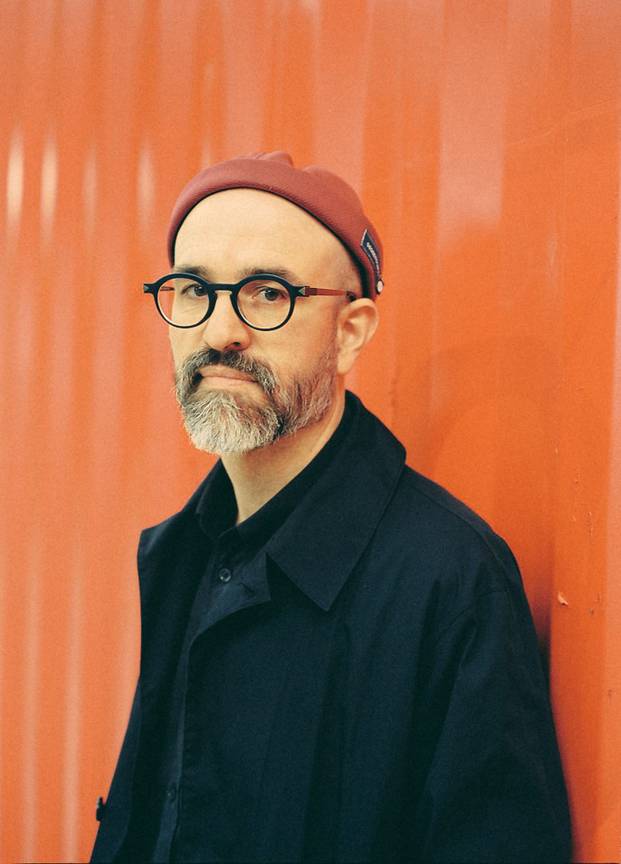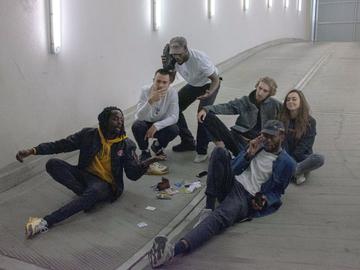Every week our radar spots young or unknown talent. Marc Melià has been spending a few years in the musical underground of Brussels, but now he really deserves his place in the spotlight.

© Mayli Sterkendries
Marc Melià: ‘The vocoder helps me to build a fluid personality’
Marc Melià was born in Mallorca. After moving to Barcelona at the age of twenty, he turned up in Brussels in 2009. That had to do with the band Lonely Drifter Karen, the shimmering folk project around the Austrian Tanja Frinta, for which he played keyboards. “We had to perform in northern Europe all the time, so Brussels seemed perfect to us as a temporary base of operations,” says Marc Melià. In the meantime, that temporariness has been converted into indefiniteness. Certainly for Melià, because Lonely Drifter Karen has swerved out of sight.
The Spanish native feels very much at home in Brussels. As a keyboardist and arranger he lends a hand to artists and bands such as David Numwami, Françoiz Breut and Flavien Berger. The latter, an electro pop singer who hails from Paris and now also calls Brussels his home, can also be heard on Melià's new second solo album, Veus. That title doesn't rhyme with dEUS: it's pronounced “veiws”, which is Catalan for “voices”. Melià has a thing about voices: he doesn't consider himself the greatest singer, but that's not the reason why he uses his voice so sparingly or distorts them with a vocoder.
“Every voice is unique, that makes you very recognisable as a person. But I love the idea of transforming just that voice into something electronic, making it very big or very small, creating multiple identities of yourself. That means that you can't recognise who or what it is. That's how I build, in a way, a fluid personality.”
Guinness Book
In a way, Melià makes a machine (for those in the know: a Prophet 08 synthesizer) fuse with his body, just like our phones have become a kind of external brain. “You can sing super fake and still get that straight with AutoTune. You can also adjust the colour and timbre. In a few years, you might be able to sing in the voice of your favourite singer.”
Becoming a full-blooded electronic musician was a liberation
Whose voice would he like to sing with himself? That of Robert Wyatt, he says, once the sound wizard of the British avant-pop group Soft Machine and today a retired solo artist. “I love his vocal timbre and the way he sings, very natural and pure.” (Laughs)
Melià may these days be an electronics wizard, but his roots lie in classical music. As a child he learned to play the piano, Igor Stravinsky's Le sacre du printemps enchanted his mind. “I expect I hold the Guinness World Record of most times of listening to that record. (Laughs) But in the meantime, I've broadened my horizons a lot.”
The electronics kicked in when Melià came to terms with the fact that he wasn't carrying around a real piano, but an electronic surrogate. “It felt like I was faking it. So I went in a completely different direction and became a full-blooded electronic musician. A liberation.”
Read more about: Muziek , you may also like , marc melià



